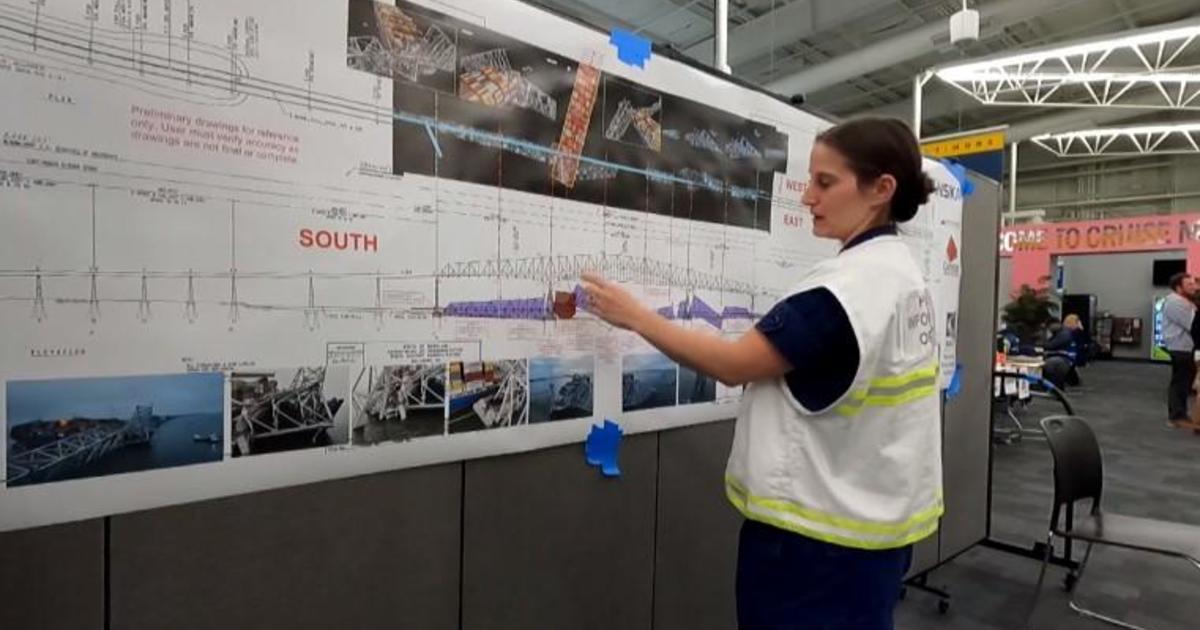Regional Leaders Discuss Debris Impact Moving Forward
BALTIMORE (WJZ) — Just days after being pounded by heavy flooding and storm debris that's clogging the Chesapeake, regional leaders came together to discuss the detrimental impact and how to better handle pollution moving forward.
All of Maryland witnessed the impact last week as the state coped with a giant mass of storm debris -- branches, trees and a nasty mess that's littering the Chesapeake.
On Tuesday, drama over who's responsible continued to play out.
Regional leaders, headlined by Gov. Larry Hogan, are desperate to figure out how to move forward as the Chesapeake Executive Council met for their annual meeting in Fells Point.
"When it comes to the health of the bay, Maryland obviously has more to lose than any other state," Hogan said.
The aftermath stems from the release of water at the Conowingo Dam in the Susquehanna River, which is owned by Exelon.
Since then, the Hogan administration and Exelon have sparred over pollution, with Maryland telling the company they should've done a better job of clearing out debris before opening the gates.
Exelon fired back, pledging $25,000 to the Chesapeake Bay Trust, saying the Chesapeake Bay is a "critically important tributary" and that "the Conowingo Dam is Maryland's largest renewable energy source and cannot be held responsible for pollutants entering the bay from upstream."
Governor Hogan responded to that letter Tuesday.
"$25,000 is a drop in the bucket and no where near the kind of money we think they should put up. They've now sued the state of Maryland but we're going to try and make sure they're a major part of the solution. They are a large generator of clean energy and that's good but they're not doing their part to help us with this problem and that's bad."
Exelon released a statement on Tuesday's press conference at the Chesapeake Executive Council meeting:
"The health and continued restoration of the Chesapeake Bay requires a clear understanding of the facts. Scientific and environmental impact studies show the Conowingo Dam is not a source of debris or pollution. The debris and pollution come from upstream sources. Exelon operates the dam at the highest standards of safety, reliability and environmental stewardship. We routinely remove debris from around the dam, and we've already voluntarily removed 600 tons of debris that has flowed from upstream sources to the dam this year. It is clear, prior to the recent storms, there was limited debris around the dam. The debris currently in the Chesapeake Bay is a direct byproduct of record rain in the region.
Contrary to assertions made today at the Chesapeake Executive Council news conference, Exelon has a strong track record of effective sustainability programs and investments in Maryland communities over many decades, and our 7,500 employees in the state are doing our part to protect and restore the health of the bay. It is important to stay focused and grounded in the facts if we are going to continue to make considerable progress restoring the water quality in the bay by 2025. Exelon will continue to work with leaders in the Bay Watershed jurisdictions to benefit the bay. The Conowingo Dam is the largest source of renewable energy in the State of Maryland and plays an important role in reducing climate change."
Environmental leaders from New York and Pennsylvania are also backing Maryland.
"If the water in the Chesapeake Bay were as good as the quality of water as it leaves New York, the Chesapeake Bay would not be impaired," said James Tierney, Deputy Commissioner, New York, Department of Environmental Conservation.
"We are absolutely committed to the reduction of nitrogen, phosphorus, sediment in our backyard," said Patrick McDonnell, Secretary, Pennsylvania Department of Environmental Protection.
While it's all hands on deck, the hope is that the days of dealing with the mess that's made its presence known in the Chesapeake, are few and far between.
"Just the fact that we have open dialogue with our upstream neighbors and the other states, I think that's a positive step in the right direction," Hogan said.
Hogan said that a recent water quality report was the best the Chesapeake has ever had, in 33 years.
Exelon said in a previous statement that they've already removed 600 tons of debris from the Susquehanna River since the beginning of the year.
Follow @WJZ on Twitter and like WJZ-TV | CBS Baltimore on Facebook



